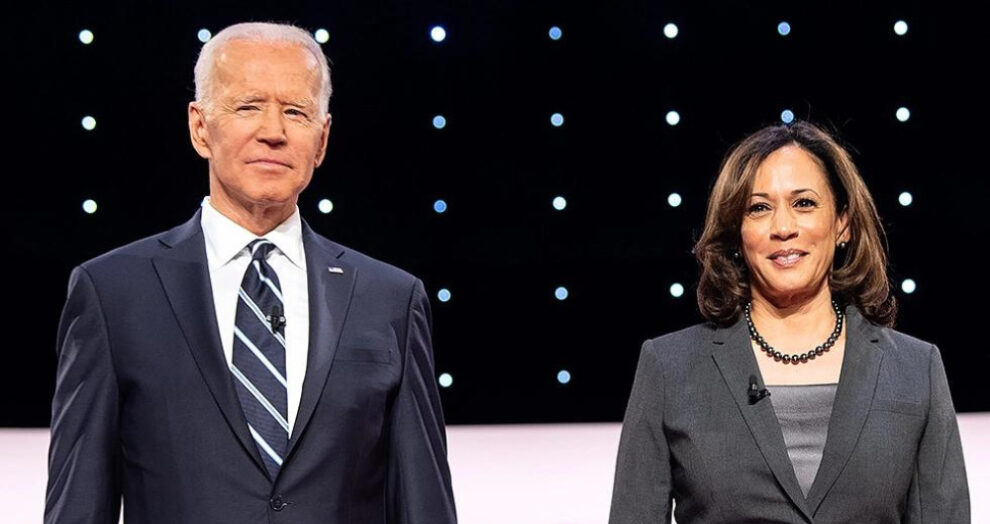Philadelphia, PA, July 21, 2023 – Today, the Biden-Harris Administration announced a series of investments that will increase market access and revenue streams for producers while strengthening the food system and giving consumers better access to locally grown foods and healthier choices. Agriculture Secretary Tom Vilsack and Deputy Secretary Xochitl Torres Small made the announcement in Philadelphia, Pennsylvania, as officials from the Biden-Harris Administration travel across the country to demonstrate how President Biden’s Investing in America agenda is delivering results and creating transformative new economic opportunities for families and businesses.
The U.S. Department of Agriculture (USDA) announced 17 new Urban Service Centers and ten new urban county committees, as well as approximately $10.7 million in investments for the Patrick Leahy Farm to School Program and an expansion of the Healthy Food Financing Initiative, including approximately $30 million in funding availability for the new Local and Regional Healthy Food Financing Partnerships Initiative.
“Through President Biden’s Investing in America agenda, we are growing local economies and building resilient communities, whether rural or urban, in every corner across the country,” said Secretary Vilsack. “The Biden-Harris Administration is committed to supporting urban communities through increased market opportunities for small and mid-sized producers, strengthening the food system nationally and locally, and investing in urban agricultural operations. These steps will allow families and farmers alike to benefit from healthier food produced closer to home.”
Together, these announcements highlight the Biden-Harris Administration’s Investing in America agenda and Bidenomics strategy to grow local economies from the middle out and bottom up and create more resilient and healthier communities across the country. In addition, the HFFI Partnerships Program and Farm to School Program investments support the Biden–Harris Administration’s National Strategy on Hunger, Nutrition, and Health.
“Families should have access to healthy, locally grown food no matter where they live, and farmers should be able to access profitable markets and revenue streams regardless of their zip code,” said Deputy Secretary Torres Small. “Today’s announcement demonstrates USDA and the Biden-Harris Administration’s continued commitment to investing in farmers of every size, in every corner of the nation so they can thrive and continue to produce the healthy food that families rely on.”
Background on Urban Agriculture
USDA works with agricultural producers through a network of more than 2,300 Service Centers nationwide. To better serve urban farmers, USDA is establishing 17 new Urban Service Centers. The Urban Service Centers will be staffed by Farm Service Agency (FSA) and Natural Resources Conservation Service (NRCS) employees and will offer farm loan, conservation, disaster assistance and risk management programs.
Meanwhile, USDA is also establishing 10 new urban county committees, which help with local administration of FSA programs.
Additionally, to help strengthen the Urban Service Centers and urban county committees, USDA is investing $40 million, made possible by President Biden’s American Rescue Plan, into partnerships with community-based organizations. They include:
- Partnerships with 17 local organizations that will conduct outreach, education and technical assistance to establish a customer base for new Urban Service Centers. These local partners will raise awareness of USDA programs and resources available and help urban producers enroll, which will support increased supply chain resiliency in local food systems by improving the sustainability and long-term viability of urban farms. For example, in Philadelphia, USDA is partnering with PASA Sustainable Agriculture to host regular community outreach and engagement events for urban growers, offer customized trainings and workshops, and provide direct technical assistance and individualized support for enrolling in USDA programs.
- Collaboration with Virginia State University’s Small Farm Outreach Program and Cornell University’s Small Farm Center to provide local partner organizations and Urban Service Centers across the country with guidance and trainings on the assistance needed most by urban producers, by collecting and analyzing data to assess program barriers and effectiveness, and by providing recommendations to increase future participation.
- Collaboration between To Improve Mississippi Economics, Inc. (TIME, Inc), who provides outreach, training, and technical assistance to small, limited resource and underserved producers and organizations providing healthy food in impoverished communities, to fund partnerships with community-based organizations in the next 10 cities where urban county committees are being created in 2024.
These investments complement other efforts made by USDA to support urban agriculture, such as:
- Investing $7.4 million for 25 Urban Agriculture and Innovative Production competitive grants.
- Investing up to $9.5 million for Composting and Food Waste Reduction (CFWR) cooperative agreements for fiscal year 2023.
- Renewing the People’s Garden movement.
- Investing in urban agriculture and urban food systems projects through the Agricultural Marketing Service’s Local Agriculture Market Program (LAMP) that develop, coordinate, and expand producer-to-consumer marketing, local and regional food markets and local food enterprises, including those located in urban communities.
Background on Farm to School Grants
USDA’s Food and Nutrition Service (FNS) awarded $10.7 million to 103 projects across the country under the Patrick Leahy Farm to School Grant Program. These investments will help 1.2 million children from nearly 3,000 schools in 40 States and the territory of Guam eat more tasty, nutritious foods, while supporting farmers and producers in their local and regional communities. These investments also reflect USDA’s commitment to reaching historically underserved and marginalized communities.
Farm to school opens opportunities for children to learn about nutrition and agriculture through hands-on experiences, such as planting, watering, and harvesting fruits, vegetables, and herbs. The program can also provide a pathway for more children to achieve nutrition security, which is the consistent and equitable access to healthy, safe, and affordable food essential to optimal health and well-being. Since the grant program’s inception in 2013, USDA has awarded $75 million through Farm to School Grants across all 50 states, the District of Columbia, the U.S. Virgin Islands, Guam, and Puerto Rico, which have reached over 25 million students in more than 59,000 schools.
Visit USDA’s Patrick Leahy Farm to School Grant Program for more information.
In addition to today’s grantmaking, USDA is partnering with the National Farm to School Network to support its cohort-based Racial Equity Learning Lab, which launches in Fall 2023. The Lab’s first cohort will include a diverse group of advocates within the farm to school community who are committed to deepening their understanding of how racial equity can be integrated into farm to school operations.
Background on Local and Regional Healthy Food Financing Partnerships Program (HFFI Partnerships Program)
In August 2023, the Reinvestment Fund in partnership with USDA will invite applications for $30 million in grant funding through the new HFFI Partnerships Program. This program will award grants to regional, state or local public-private partnerships to establish and grow local, regional or state food financing programs. Until now, HFFI has only offered grants and technical assistance to food retailers and other enterprises. This new program expands on and complements that work by engaging partners to improve access to fresh, healthy and affordable food as well as providing technical assistance in underserved areas.
HFFI works to improve access to healthy foods in underserved areas, create and preserve quality jobs and revitalize low-income communities. To administer HFFI, USDA is partnering with Reinvestment Fund, a national Community Development Financial Institution (CDFI) that serves as the National Fund Manager for HFFI.
Additionally, later this year, USDA will further expand the Healthy Food Financing Initiative by offering grants, loans, and technical assistance to food retailers and food enterprises in underserved areas. More information on these new opportunities will be shared in the coming months. This full expansion of the HFFI program was made possible by President Biden’s American Rescue Plan Act.
USDA touches the lives of all Americans each day in so many positive ways. In the Biden-Harris Administration, USDA is transforming America’s food system with a greater focus on more resilient local and regional food production, ensuring access to healthy and nutritious food in all communities, building new markets and streams of income for farmers and producers using climate-smart food and forestry practices, making historic investments in infrastructure and clean-energy capabilities in rural America, and committing to equity across the Department by removing systemic barriers and building a workforce more representative of America.
Source : USDA















